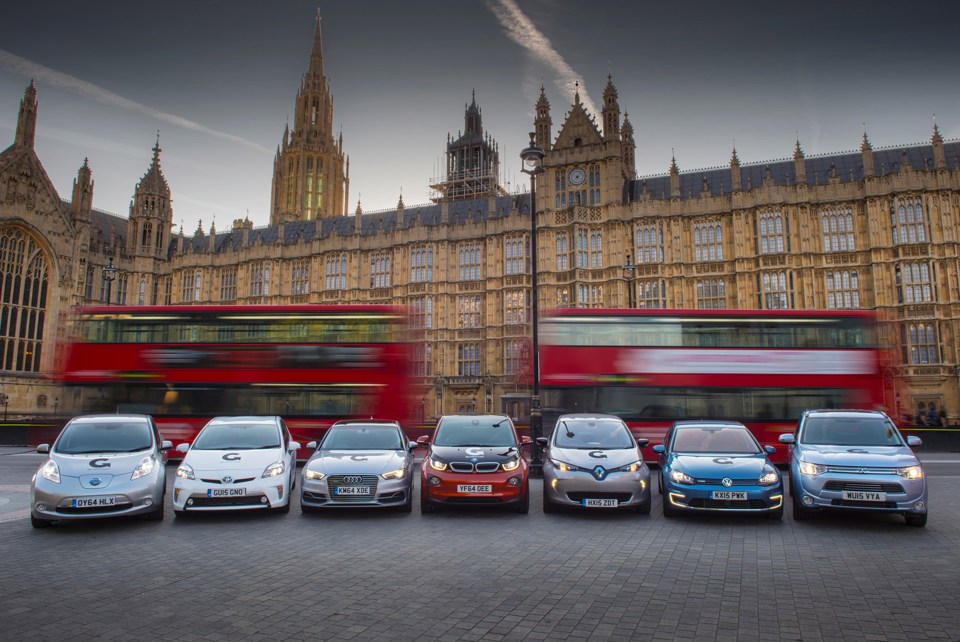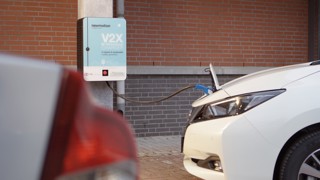The demand for electric vehicles (EVs) is beginning to grow, but businesses are hesitant to "take the plunge", according to Lombard’s managing director Ian Isaac.
Writing in the NatWest UK Automotive PMI report, published today (Monday, June 24), Isaac says we may be experiencing the start of an evolution - driven by EVs.
“We are teetering on the edge of the ‘first to move’ precipice,” he says. “Ultimately, while we are seeing the demand and desire for electric vehicles begin to grow, consumers and businesses are hesitant to take the plunge and make the purchase.
“This stems from the speed at which the technology is improving – what may be the best-in-class electric vehicle today may very quickly be outdated in just a matter of months. This hesitancy is contributing to the industry downturn highlighted by the media and backed up by statistics.”
However, he says this will not last forever; in fact, people are already starting to make the leap. The cumulative number of electric cars registered in the UK increased from 3,500 in 2013 to more than 214,000 by the end of May 2019.
There has also been a huge increase in the number of pure-electric and plug-in hybrid models available in the UK with many of the top manufacturers in the UK now offering a number of EVs as part of their model range.
Figures from the Society of Motor Manufacturers and Traders (SMMT) each month show that electric car sales are increasing – from 500 registered per month in H1 2014, to an average of 5,000 per month during 2018.
SMMT data also reveals, however, that electric vehicle sales only make up around 6% of the market.
Isaac continues: “So while many are making the leap, the precipice is proving more difficult for the majority to climb over. The remaining 94% isn’t moving as quickly as analysts predicted and auto industry workers desire.”
Lombard’s data suggests that by 2030, a quarter of new car sales (25%) will be under the umbrella of mobility as a service (MaaS), such as ride-hailing, ride-sharing and subscription services.
More emphasis will be on fleet providers than ever before and the desire of more environmentally-aware younger consumers will be for this fleet of vehicles to be electric, says Lombard.
“Our studies suggest that 69% of new car sales by 2030 will be of electric vehicles and alternative fuels,” says Isaac. “The trick is for manufacturers to invest and to be ready as the demand materialises, and there are grounds for optimism, particularly when you look at our battery market.”
Britain builds the Nissan Leaf – the best-selling electric car in Europe – and Jaguar Land Rover invested in a battery site at Hams Hall in Q1 this year. Aston Martin has also revealed plans to produce the batteries for its Lagonda vehicles. This is all happening against a backdrop of political support.
The NatWest UK Automotive PMI report is produced by NatWest and IHS Markit, and is based on responses from UK automotive sector manufacturers and benchmarked against equivalent indices for Europe and the rest of the world.
It shows that the downturn in UK automotive sector output, order books and employment in the second quarter of 2019 has been amplified by a payback from extended production schedules in March.
Survey respondents widely commented on softer domestic demand following production stoppages at volume manufacturers and a reversal of stock building across the supply chain.
Looking through the noise of unseasonal production shutdowns, the recent PMI figures indicate the worst period of underlying demand since late-2012. Export sales were especially subdued in May, with automotive sector manufacturers pointing to the steepest drop in new orders from abroad since April 2009.
Comparisons of the UK Automobiles & Auto Parts PMI data against international benchmarks illustrate that manufacturers have faced declines in order books of a similar scale to those seen across Europe and further afield.
Richard Hill, head of automotive and manufacturing at NatWest, said: “The challenge for the UK automotive sector is to chart a course through the intense industry headwinds that are so clearly evident in the report findings.
“At NatWest, where we are committed to playing our role to support the automotive sector, we believe that new collaborative models hold the key to success.
“At this critical juncture for automotive sector growth and investment, we must accelerate efforts to collaborate across the critical elements of the auto sector ecosystem - OEM’s, supply chain, policymakers, investment and finance communities.
“These connections will help ensure that the UK can deliver the industrial capacity, infrastructure and regulatory framework to maintain and build on its leading role in the future global automotive sector ecosystem.
“The prevailing malaise will eventually be seen as a cyclical issue for automotive manufacturers, albeit a slowdown that has taken hold more quickly and become more widespread internationally than first anticipated.”
He continued: “We have seen the softening of automotive demand amplified by an escalation of policy uncertainty worldwide. Most notably, diesel emissions regulations, changes to the planned speed of transition to carbon neutrality in Europe and new US-China trade tariffs.
“The resilience of the UK automotive sector is well proven, with a track-record of leading routes to recovery and advancement.
“Manufacturers have faced and overcome ‘perfect storms’ before, most recently in the wake of the 2008/09 global financial crisis. The current storm is as significant with different factors at play therefore requiring new and innovative solutions.
“The coming global shift towards electric powertrains is opening up huge rewards for value creation across the supply chain, while the technologies underpinning the future of mobility may create new geographic hubs for industrial innovation.
“It is my firm belief that the UK is well placed to thrive in an environment of technology-driven automotive trends, but we must act fast and think collaboratively to maximize the opportunities ahead.”























Login to comment
Comments
No comments have been made yet.